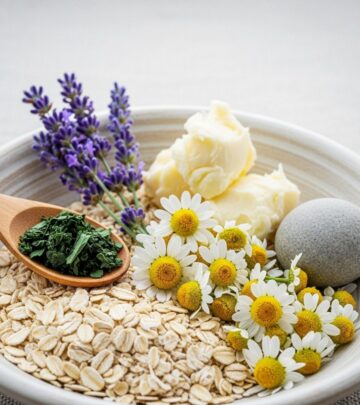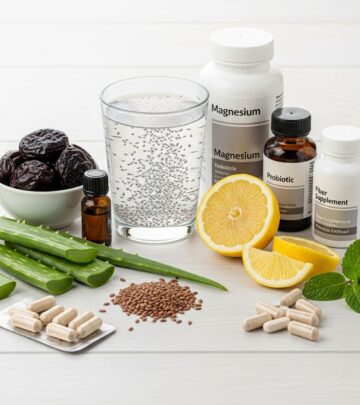11 Effective Home Remedies for Toothache Relief
Discover natural and practical ways to soothe toothaches at home while protecting your oral health and wellbeing.

Tooth pain can strike at any moment, ranging from a mild discomfort to intense throbbing that disrupts sleep and daily activities. While professional dental care is essential for the lasting management of tooth problems, several home remedies can offer temporary relief until you can visit your dentist. Understanding these strategies, their benefits, and limitations can help you address discomfort safely and effectively at home.
Table of Contents
- Understanding Toothache: Causes and When to Seek Help
- Quick Relief Steps for Sudden Tooth Pain
- 11 Trusted Home Remedies for Toothache Relief
- Reducing Future Tooth Pain: Prevention and Diet
- Frequently Asked Questions (FAQs)
Understanding Toothache: Causes and When to Seek Help
Tooth pain is your body’s warning system. It signals that something is wrong in your mouth—be it infection, injury, decay, or gum disease. The enamel, dentin, and pulp are layers of your teeth. When the inner layers (especially the pulp, which contains nerves) become exposed or infected, pain arises. Common causes include:
- Dental cavities or decay
- Gum infections (abscess, periodontal disease)
- Cracked or broken teeth
- Damaged fillings or restorations
- Impacted food or debris
When should you see a dentist? Severe or persistent pain, swelling, fever, or presence of pus/infection are signs that immediate professional attention is needed.
Quick Relief Steps for Sudden Tooth Pain
If you experience acute tooth pain and cannot get to a dentist right away, consider these steps to find prompt at-home relief:
- Gently rinse your mouth with warm water to clean out debris.
- Floss carefully to remove trapped food particles between teeth.
- Use a cold compress on the outside of your cheek to reduce swelling and numb discomfort.
- If appropriate, consider over-the-counter pain relievers following label instructions.
These steps are not substitutes for dental care but can provide interim comfort.
11 Trusted Home Remedies for Toothache Relief
Below are 11 home remedies commonly recommended to soothe tooth pain naturally. Each method targets inflammation, infection, or sensitivity, but remember—they cannot cure the underlying cause and should be viewed as temporary solutions.
1. Salt Water Rinse
A salt water rinse is a simple but effective remedy that helps cleanse the mouth, reduces inflammation, and promotes the healing of oral wounds.
- Mix 1/2 teaspoon of salt into a glass of warm water.
- Rinse your mouth thoroughly for 30 seconds and spit out.
- Repeat several times daily.
Benefits: Salt water acts as a natural antiseptic, provides relief for sore gums, and helps dislodge debris.
2. Hydrogen Peroxide Rinse
Hydrogen peroxide (3%) diluted with equal parts of water can help kill bacteria, reduce plaque, and ease discomfort from infections.
- Mix equal parts 3% hydrogen peroxide and water.
- Swish in the mouth but do not swallow.
- Rinse with water afterwards.
Note: Never use undiluted hydrogen peroxide. Avoid if you have children or tend to swallow during rinsing.
3. Cold Compress
The cold compress technique constricts blood vessels, slows down pain signals, and helps manage swelling.
- Wrap ice or a cold pack in a towel and hold it against the cheek near the painful tooth for 15–20 minutes.
- Repeat as needed every few hours.
4. Clove Oil
Clove oil contains eugenol, a natural anesthetic and antiseptic that numbs pain and reduces infection.
- Dab a small amount of clove oil (diluted with carrier oil if sensitive) onto a cotton ball.
- Place gently on the aching tooth.
- Remove after a few minutes.
Caution: Use sparingly; direct prolonged contact may cause irritation to gums or soft tissues.
5. Peppermint Tea Bags
Peppermint exhibits mild numbing properties and can soothe irritated gums.
- Steep a peppermint tea bag, allow it to cool slightly.
- Apply the warm (or cooled) bag directly to the affected area.
- Hold in place for 10–20 minutes.
6. Garlic
Garlic’s primary compound, allicin, is known for its potent antibacterial and pain-relieving effects.
- Crush a garlic clove to release allicin.
- Mix with a little salt and apply to the sore tooth.
- Chew a clove gently for additional effects.
Note: Some may experience burning or irritation; discontinue if discomfort worsens.
7. Warm Compress
While cold is ideal for reducing swelling, a warm compress can ease persistent, deep-seated aches.
- Soak a washcloth in warm water, wring out excess.
- Hold against the cheek on the affected side.
- Repeat as needed for comfort, especially in the absence of visible swelling.
8. Vanilla Extract
Real vanilla extract contains alcohol, which can numb pain, and antioxidants that aid in healing. Avoid imitation flavorings.
- Dab a small amount of vanilla extract onto a cotton ball.
- Apply to the aching tooth for several minutes.
- Repeat as needed.
9. Guava Leaves
Long treasured in traditional medicine, guava leaves offer antibacterial, anti-inflammatory, and pain-relieving benefits.
- Chew on fresh guava leaves after washing, or
- Boil cleaned leaves, cool the resulting liquid, and use as a mouth rinse.
10. Wheatgrass
Wheatgrass is a natural healer due to high chlorophyll content, which inhibits bacteria and reduces inflammation.
- Use wheatgrass juice as a mouth rinse, swishing for a minute or more.
- Repeat several times daily for best results.
11. Thyme
Thyme possesses powerful antibacterial and antioxidant properties.
- Mix a few drops of thyme essential oil with a carrier oil.
- Apply with cotton to the painful area.
- Alternatively, prepare thyme tea, allow it to cool, and use as a mouth rinse.
Reducing Future Tooth Pain: Prevention, Diet, and Dental Visits
While these home remedies provide temporary solace, lasting dental health is rooted in prevention. Consider the following strategies for reducing future toothache risks:
- Prioritize oral hygiene: Brush gently twice daily with a fluoride-free toothpaste if sensitive, floss, and rinse after meals.
- Watch your diet: Limit sugar and acidic foods that erode enamel. Increase foods rich in vitamins A, D, K2, calcium, and phosphorus to help remineralize teeth and support gum health.
- Select natural remedies thoughtfully: Some natural substances can aggravate sensitive tissues—always test in small amounts and stop if irritation occurs.
- Schedule regular dental check-ups: Early intervention is the best way to address dental issues before they become painful.
According to dental experts, improving overall nutrition through whole, unprocessed foods and supporting healthy oral microbiome balance can reduce incidence of decay and inflammation.
Frequently Asked Questions (FAQs)
Q: How do I know if my toothache is serious?
Signs of a serious problem include persistent pain, swelling, fever, bad taste or pus in the mouth, difficulty swallowing, or pain that wakes you at night. If these occur, seek dental care right away.
Q: Are home remedies safe for everyone?
Most remedies are safe short-term if used as directed. However, children, pregnant women, and individuals with allergies or medical conditions should consult a dentist before trying new remedies.
Q: Can I use essential oils for tooth pain?
Essential oils like clove or thyme can help, but must be diluted with a carrier oil. Always test for sensitivity and avoid swallowing oils.
Q: Why do toothaches seem worse at night?
Blood flows more to the head when lying down, increasing pressure and intensifying pain. Try elevating your head and using cold or warm compresses to manage discomfort.
Q: Do these remedies cure tooth infections?
No, home remedies provide temporary relief but cannot heal infections or underlying structural issues. Professional dental treatment is required for lasting resolution of infections, abscesses, or cavities.
Tips to Maximize Home Remedies
- Always use remedies in moderation and monitor for allergic reactions.
- If pain persists more than a day or is accompanied by swelling, see a dentist promptly.
- Keep a regular oral hygiene routine even during episodes of toothache.
- Avoid very hot, cold, or sugary foods that might trigger or worsen pain.
Conclusion
Tooth pain is a distress signal—not just a nuisance. While the home remedies described above can provide short-term comfort, they do not replace the critical need for professional dental assessment and treatment. Combining thoughtful self-care, a ^nutritious diet, and routine dental visits is the surest path to enduring oral health. Listen to your teeth, act promptly, and partner with your dentist to keep your smile strong and pain-free.
References
- https://hurstpediatricdentistry.com/blog/how-to-help-a-childs-toothache/
- https://www.drstevenlin.com/diet-and-dental-health/
- https://www.youtube.com/watch?v=3X3BBTBydVI
- https://www.drstevenlin.com/category/natural-dental-remedies-2/
- https://www.thedoctorskitchen.com/podcasts/16-eat-for-your-teeth-with-dr-steven-lin
- https://www.youtube.com/watch?v=vcMRFPqoL6s
- https://www.youtube.com/watch?v=ojhwHUc0u-A
- https://www.archerdental.ca/blog/the-dental-diet/
Read full bio of medha deb












